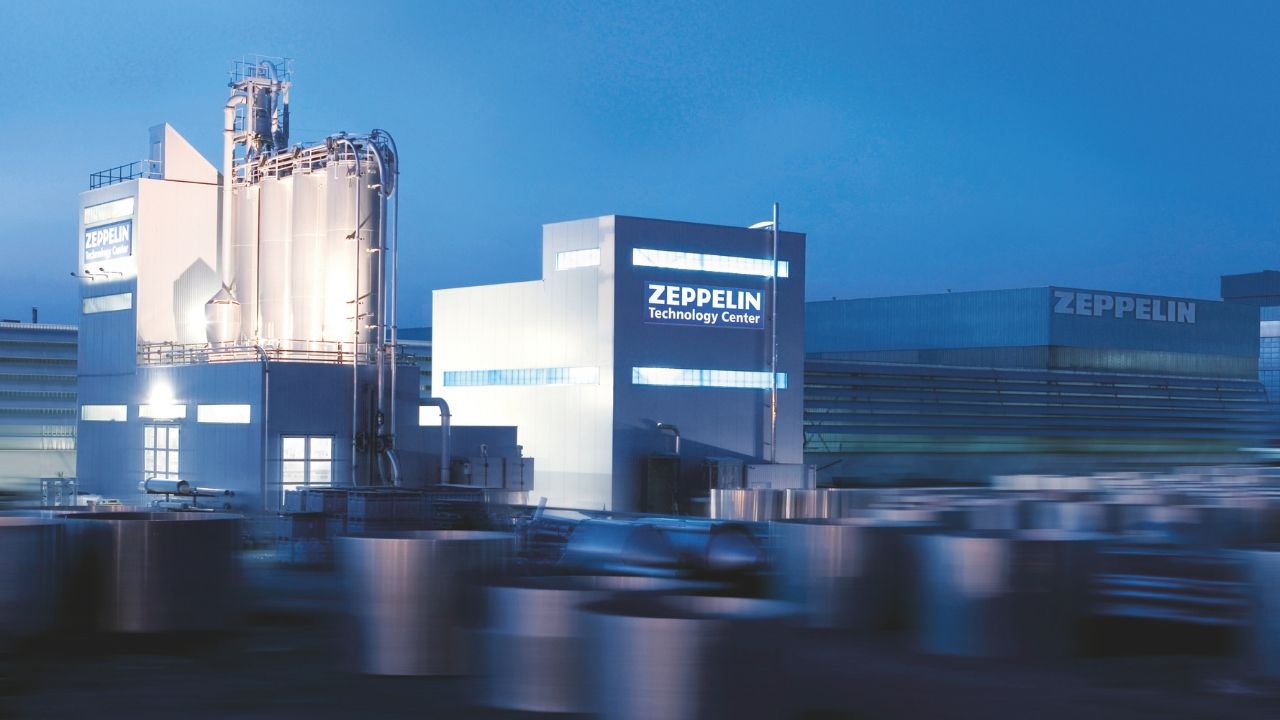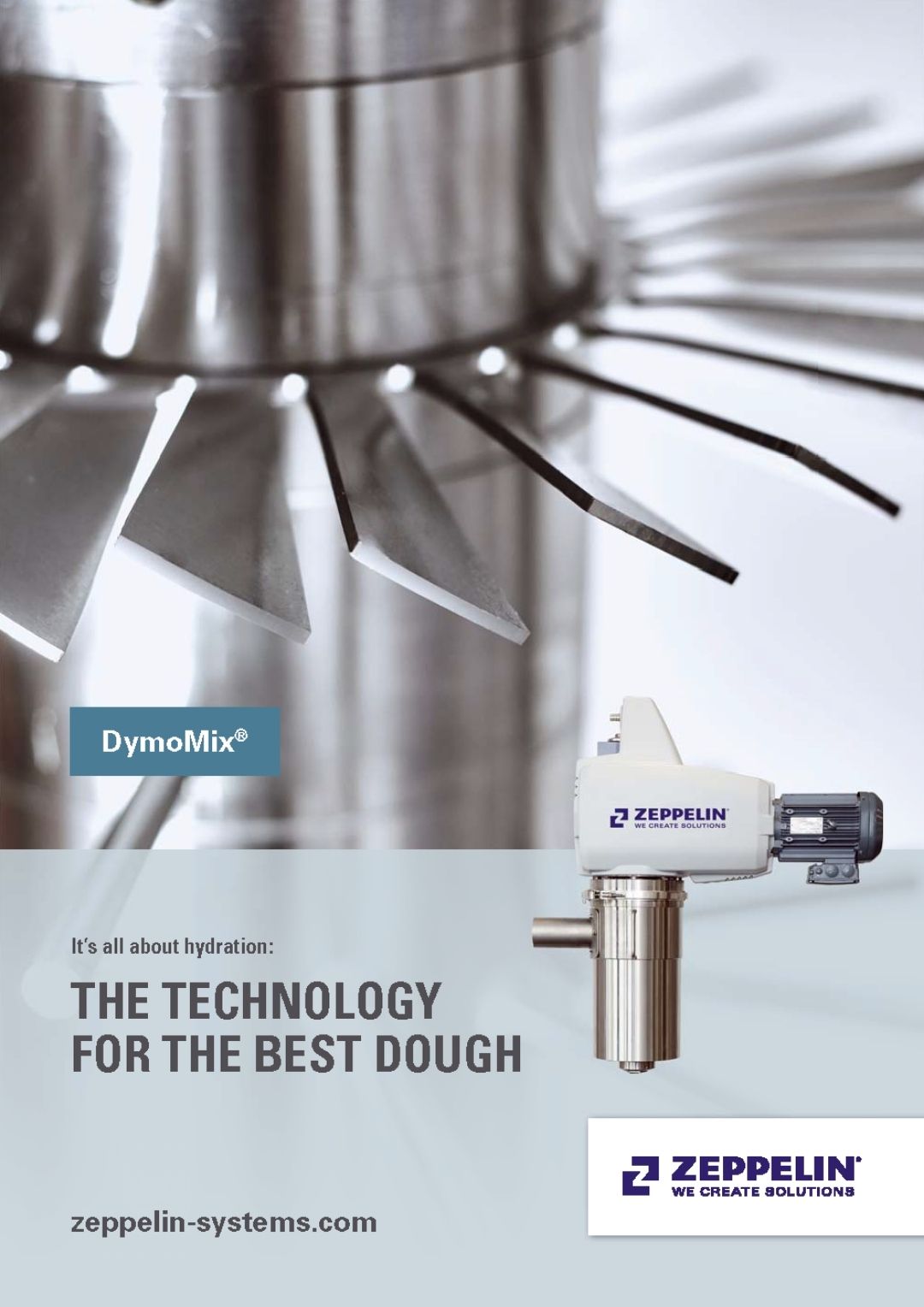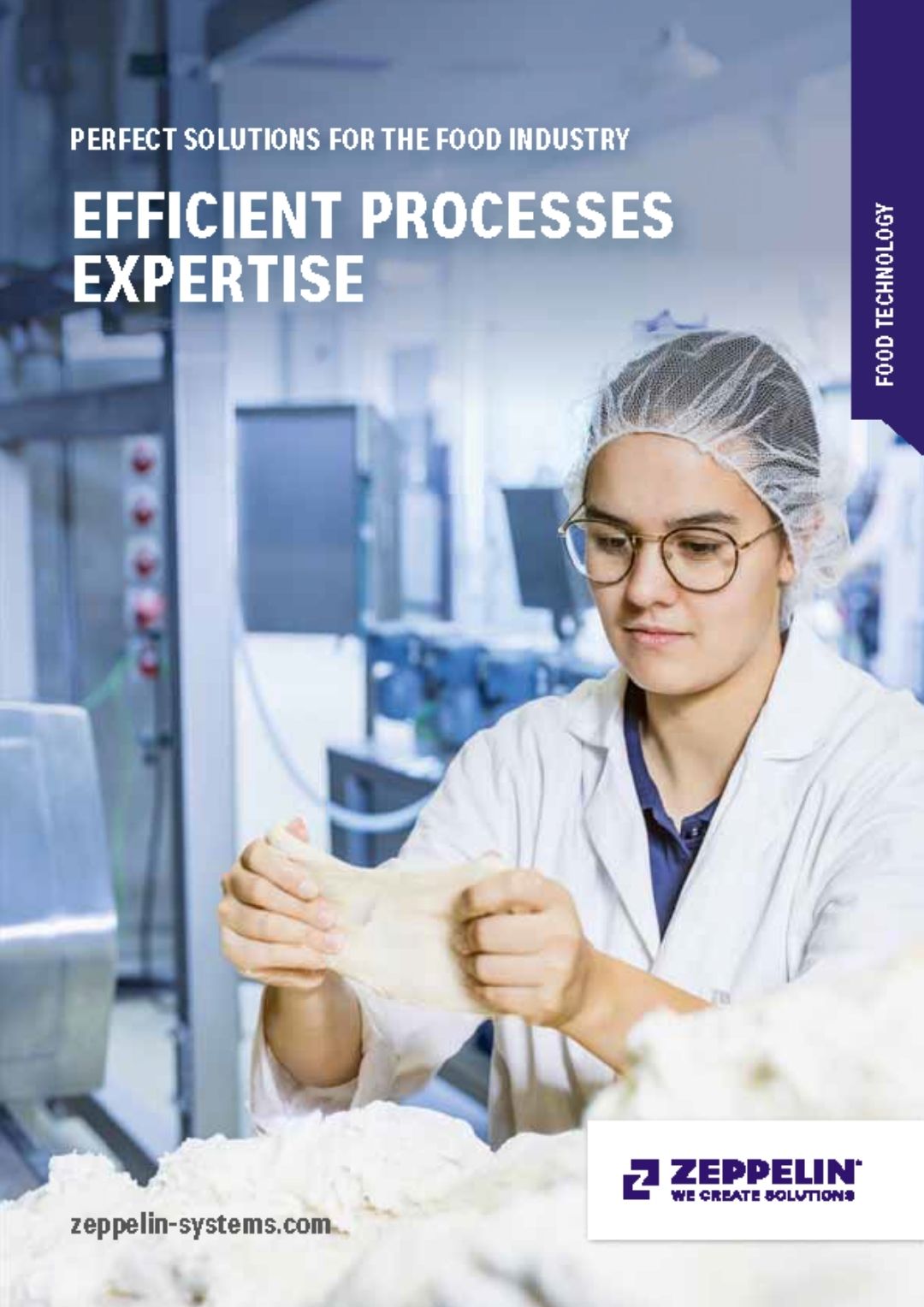
Pasta
Quality for the Masses
Pasta, Maultaschen, ravioli and more: with our process expertise, Zeppelin Systems ensures that your dough products are, quite literally, in everyone’s mouths.
Perfect process, perfect pasta - with Zeppelin Systems, pasta is on everyone's lips
Folded, filled, twisted, coiled or rolled – pasta products aren’t just in season year-round, they also come in countless shapes, colors and varieties on tables around the world. And of course, you should be free to focus entirely on your recipes and creations. Zeppelin Systems provides the ideal conditions for that – with a portfolio that includes innovative plant technology, in-depth process expertise and a constant eye for new possibilities. The result: worthy of a star!
Application Areas

Short Pasta

Long Pasta

Dumplings

Spätzle
Optimally equipped with Zeppelin Systems
Mastering the Challenge of Pasta Production
The variety of ingredients for pasta is constantly growing, whether grain products like durum wheat, soft wheat, spelt, or rye, or milling products from buckwheat, barley, oats, millet, corn, and rice, which are primarily used for multigrain pasta. No matter how diverse the raw materials are, they all have one thing in common: only with high-quality raw materials can perfect pasta be produced.
Safe delivery and storage of raw materials
The main focus is initially on the safe delivery and proper storage of raw materials. These steps are essential to ensure the quality of pasta production.
Precise dosing of ingredients
The most important step in the production process is the precise dosing of solid and liquid components. This is the only way to ensure the exact adherence to the recipe.
Consistent feeding during continuous production
In continuous manufacturing processes, raw materials must be fed evenly and in accordance with the recipe. This ensures that production runs smoothly and efficiently.
Compliance with regulations for pasta production
Pasta must contain a maximum of 13% water, with the exception of fresh doughs. Adhering to such regulations is crucial for the quality and safety of the products.
Process steps with potential
Efficient solutions powered by Zeppelin technologies and expertise
Whether in the home kitchen or on an industrial scale: the detailed knowledge of each individual process step is key to successful pasta production. Rely on our process expertise to ensure your products are as unforgettable as the handmade specialties you couldn’t get enough of as a child.

Raw material intake
Perfect raw material intake
Right from raw material delivery, we ensure maximum safety by integrating solutions such as feed hoppers, jet vent filters, and fans. This guarantees a dust-free, gentle, and contamination-free transfer of raw materials into the process—regardless of packaging type or product.
Go to separating
Storage
Thought-out storage concepts
We develop customized solutions that take into account cooling, insulation, explosion protection, hygienic design, and optimized cleaning options—ensuring cost-effective and gentle storage of all raw materials.
Go to storage silosDischarge
Intelligent discharge modules
We offer customized discharge solutions such as big bag stations, sack tipping units, or fluidized beds with air loosening to ensure a consistent material flow and precise dosing. Our process experts work closely with you to identify the optimal solution tailored to your specific requirements.
Go to discharge aids
Conveying
Product-specific conveying
Benefit from our customized conveying systems designed specifically for sensitive raw materials. With technologies such as Lean-Tec, Dense-Tec, and Twin-Tec, products are transported gently and efficiently, while energy costs are optimized. The Dense-Tec process, in particular, offers excellent protection for fragile and break-sensitive materials.
Go to conveying
Sieving
Safety sieves for secure product quality
With our screening solutions such as rotary sieve machines and magnetic separators, we ensure the reliable removal of foreign particles from incoming materials. Whether used as pre-sieves, post-sieves, or inline screening units, our systems provide ideal starting conditions for smooth processes and consistently high product quality.
Go to screening machines
Weighing & Dosing
Maximum precision in weighing and dosing
Our customized solutions for dosing and weighing range from manual systems to fully automated high-performance installations such as MicDos, MinDos, and MacDos. With advanced technologies like dosing and conveying screws or KOKEISL technology, even sensitive products are handled gently and precisely.
Go to weighing & dosing
Moistening
Moistening and coating with the DymoMix
Take advantage of our innovative DymoMix™ system. Originally developed for bread dough, this moistening system acts as a premixer between dosing and further processing. It instantly creates a homogeneous mixture by moistening powdered components with water or oil.
Go to mixing & kneadingEight benefits for the industry
Experience and expertise
Decades of experience in plant engineering for the food industry result in economical, resource-efficient, and highly effective solutions for our customers—whether for a new installation or the modernization of an existing brownfield facility.
Industrial-scale testing
The Food Technology Center is equipped with test facilities for dosing, conveying, weighing, sieving, and mixing of formulations. On-site trials and tests enable system optimization and provide a reliable basis for designing efficient plant solutions.
Tailored solutions
All systems are precisely tailored to the specific requirements of your processes and materials.
Innovative technologies
Cutting-edge technologies for maximum energy and process efficiency, reliability, and sustainability in the processing of high-quality bulk materials.
Global delivery and support
A global presence ensures a comprehensive worldwide service and maintenance network.
High efficiency and cost savings
Optimized processes and automated workflows reduce operating costs and boost productivity.
Top quality standards
Use of premium materials and technologies that ensure long-term reliability and low maintenance costs.
Sustainability focus
Systems designed to reduce energy consumption and emissions actively support your environmental and sustainability goals.
Need more details? Our contact person will be happy to assist you
Ingo Pütz
Global Market Manager Sales Food Processing Plants
Services
Discover our comprehensive range of services

Zeppelin Technical Center
Industrial-scale testing
Testing is good; testing at a 1:1 scale under real-world conditions is even better. To support this, we have established optimal facilities at our Friedrichshafen technical center: based on your recipe and desired throughput, we identify the plant technology tailored to your needs — and test the complete system for you in live operation.
Go to technical center
Automation
Automation with foresight
Above all, your plant must do one thing: run and deliver. That’s why we provide you with reliable, professional service. Rely on our global service network for expert consultation and extremely fast spare-parts supply to minimize downtime. When needed, we’re also at your side digitally—from virtual troubleshooting to online-supported commissioning.
Go to automation solutions
Service
Service without compromise
In the 21st century, optimization often means automation. We ensure that your automation project is a complete success in terms of both efficiency and cost-effectiveness. To achieve this, we rely on cutting-edge control systems whose open architectures prepare you for the challenges of tomorrow—and beyond.
Go to servicesResources
Brochures for download
Explore more from the Zeppelin Systems portfolio
Products
© 2026 Zeppelin Systems GmbH

